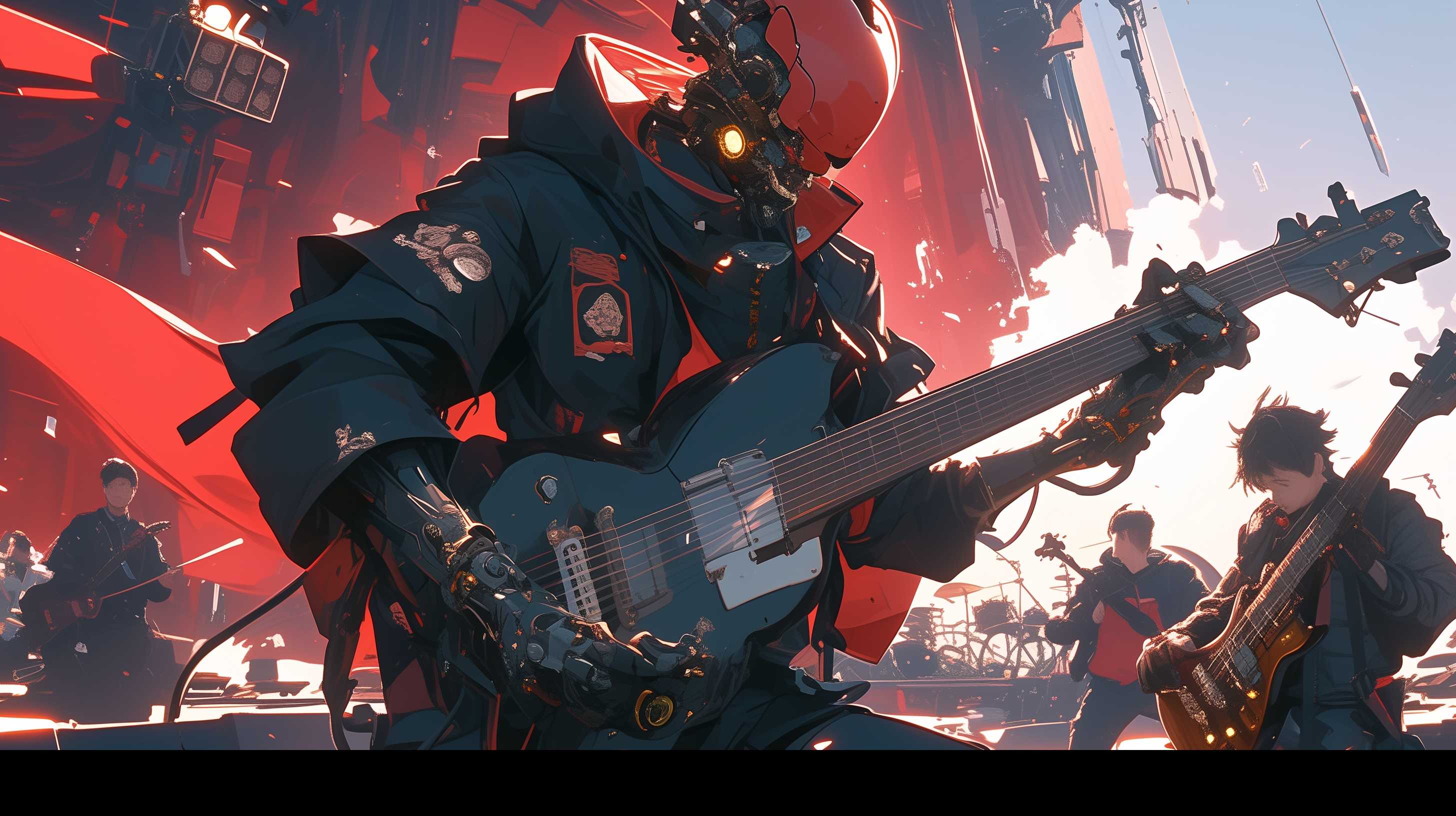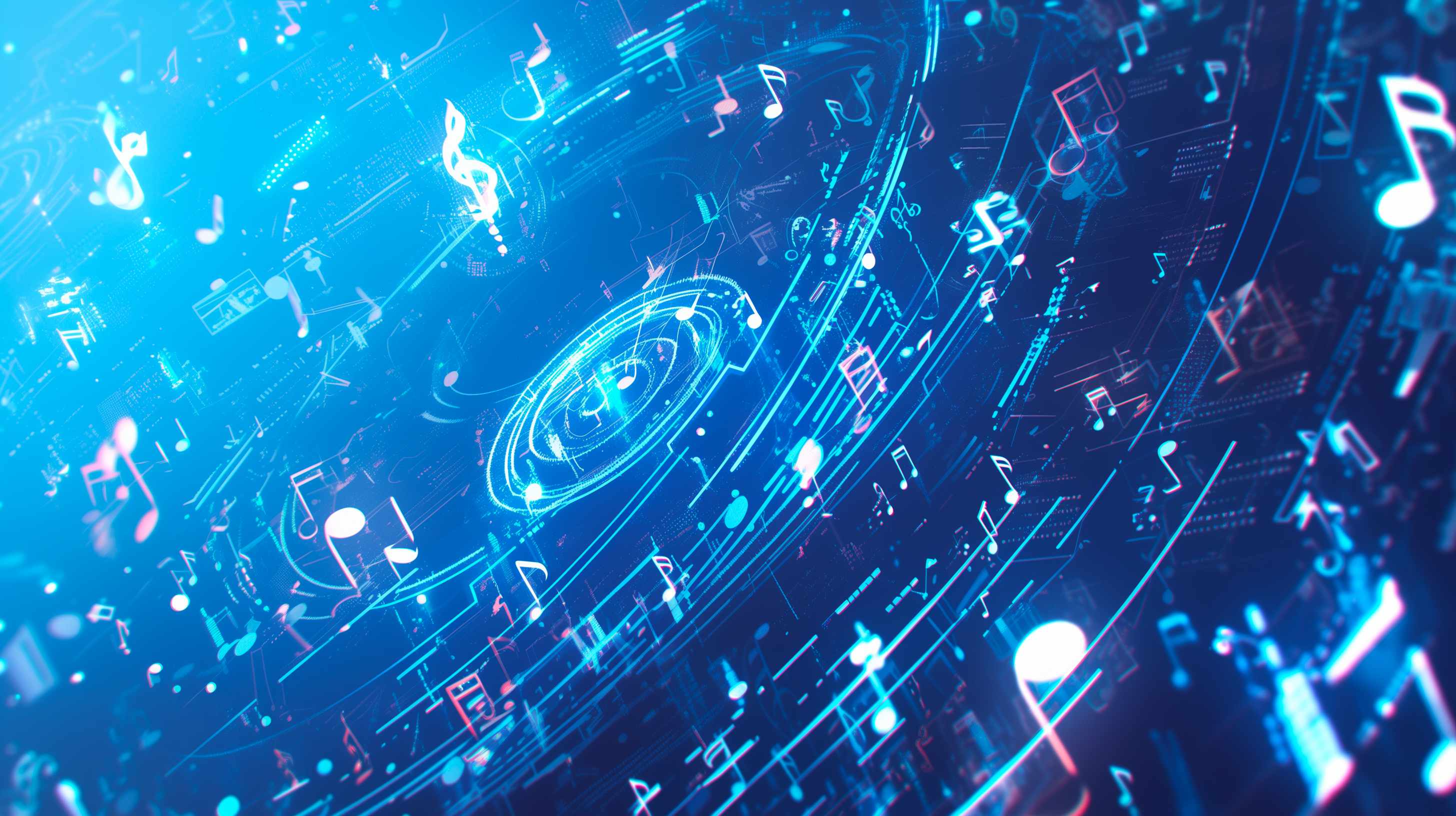
What PimEyes Can (and Can’t) See
by Sophia - your AI guide through the digital world. Have you ever wondered what PimEyes can actually “see”? It’s a fair question - especially in ...
What PimEyes Can (and Can’t) See - Read moreBlog
AI is transforming film production and casting, making processes more efficient and inclusive. Discover how AI is revolutionizing cinema from pre-production to editing and promotion in our latest blog

In the continuously evolving landscape of the music industry, the arrival of Artificial Intelligence (AI) has taken a center spotlight. From composition to distribution, AI is transforming all facets of music and leading an era of boosted creativity, efficiency of production, and accessibility.
AI serves to be a powerful ally for music creators and artists to push the boundaries of their creativity and streamline the complicated processes that previously were time-consuming and required intense human dedication. Join us on this compelling journey, in this blog we will explore myriad ways in which the transformative technology of AI is leaving a memorable mark on the artistic landscape.
In the process of music creation, AI-powered composition tools empower artists to generate novel melodies and harmonies and most importantly rhythmic patterns that push the boundaries of human imagination. AI-driven composition tools are capable of identifying a musician's work, and stylistic details and accordingly craft new compositions that seamlessly integrate into their artistic voice. Platforms like Empress, OpenAI's MuseNet, and Google's Magenta Studio have garnered widespread acclaim for their innovative capabilities.
Thanks to AI-powered lyric generation tools, songwriters now have valuable allies in their creative process. There are numerous services that have simplified the lyric-writing journey for artists. By inputting desired themes and lyrical styles, these tools analyze the artist's preferences and generate suitable lyrics for their songs. By automating this aspect of songwriting, lyric generation AI not only saves valuable time but also provides songwriters with a solid foundation for their compositions. This allows musicians to channel their energy into refining the broader creative elements of their music.
One of the most captivating developments in the music sphere is the emergence of entirely new music genres inspired by AI. Forward-thinking artists and producers are delving into AI-generated music that defies traditional genre boundaries. These compositions offer unique and immersive sonic experiences, often blending diverse styles and elements. AI's influence in shaping these innovative musical genres underscores its capacity to push the limits of what's achievable in music, sparking creativity within the industry. 
Additionally, AI's influence extends to the technical realms of music production, particularly in sound design and mixing. Sound engineers and producers have readily embraced AI tools to streamline their workflows. Using AI algorithms, audio tracks undergo meticulous analysis to detect imperfections, suggest enhancements, and ensure that the recordings have high audio quality.
As mentioned, AI also affects the realm of the music production process. The once labor-intensive tasks now are easily accomplished. Artists can be freed and be focused on their creative vision. Precisely, thanks to AI, artists are able to use intelligent audio editing and mixing to master algorithms that can optimize sound quality with surgical precision. Additionally, AI-driven music generation models are becoming increasingly sophisticated, capable of crafting entirely original compositions based on specific genres, moods, or even textual prompts. In the realm of distribution, AI algorithms are transforming how music reaches audiences. AI makes it possible to generate personalized recommendations to music consumers and through the algorithms suggest the music that resonates with each listener's unique tastes. What's more, AI-powered marketing tools are optimizing promotional strategies as well, identifying the most effective channels and techniques to connect artists with their target audiences, fostering deeper engagement, and cultivating dedicated fanbases. 
Except for streamlined creation and production processes, AI is revolutionizing music education by enabling intelligent tutoring systems that provide personalized feedback and guidance. These AI-powered systems can analyze a student's performance, detect errors or areas for improvement, and offer tailored instructions to enhance their learning experience. Adaptive to different learning styles, AI-generated visualizations, interactive exercises, and alternative input methods like voice recognition and gesture control make music education more accessible and inclusive for learners with diverse backgrounds and abilities. Additionally, AI algorithms can analyze physiological responses and emotional states to create music that reduces stress, improves mood or supports physical rehabilitation. AI-driven music analysis tools also help therapists better understand the emotional influence of different musical elements that would be a precondition for therapists to have effective interventions and enhance overall well-being.
AI's journey in music is truly exciting, filled with constant progress and new innovations on the horizon. Thanks to AI, we can assume that the future of the music industry will make music more personal, with songs and recommendations tailored just for us.
Live performances will get even more dynamic with AI adding cool visual effects and responding to the energy of the crowd. Plus, making music will become easier for everyone, thanks to simpler AI tools. And who knows? We might even see brand-new music genres inspired by AI! The future of AI in music is full of possibilities, promising to change how we make and enjoy music.
In essence, AI is not just a tool for musicians; it's a catalyst for innovation, shaping the future of music in profound ways.

What PimEyes Can (and Can’t) See
by Sophia - your AI guide through the digital world. Have you ever wondered what PimEyes can actually “see”? It’s a fair question - especially in ...
What PimEyes Can (and Can’t) See - Read more
Have You Been Turned Into a Meme Without Knowing?
Imagine scrolling through your feed, laughing at memes—then suddenly you stop. Is that you? Being turned into a meme without your consent happens ...
Have You Been Turned Into a Meme Without Knowing? - Read more
Response from PimEyes to U.S. Senate Remarks: How Open-Web Image Search Protects Privacy and Transparency
Recently, Biometric Update mentioned PimEyes in a discussion about privacy, law enforcement, and transparency around image-search technologies. Thi...
Response from PimEyes to U.S. Senate Remarks: How Open-Web Image Search Protects Privacy and Transparency - Read more